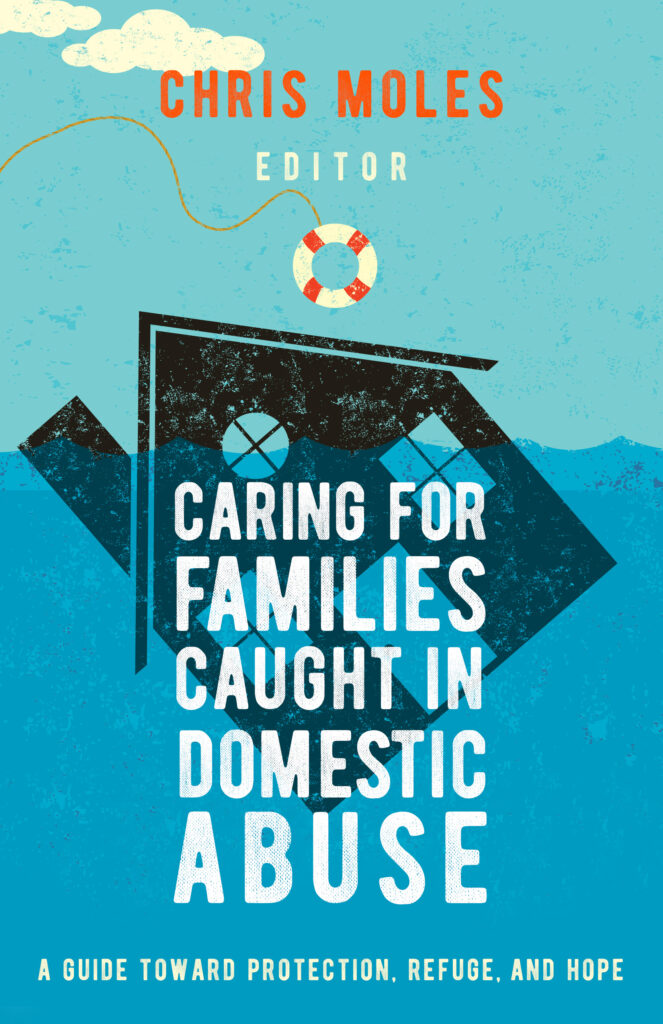Amid the darkness and despair that accompany domestic abuse, victims desperately long for comfort, guidance, and inner strength. In Psalm 121:1—2, we find words that resonate with our heart’s desire to seek help and more importantly receive help: “I lift my eyes to the hills. From where does my help come? My help comes from the Lord, who made heaven and earth.” How does the Lord bring help to those who are suffering through domestic abuse? Psalm 121 reminds us that we go to the Lord for needed help and he helps us through his word and the support of his church.
1. Help from God’s Word
God’s Word is a powerful source of strength and hope, even in the confusion and pain of domestic abuse. The Bible provides survivors of domestic abuse with the tools to heal, recover, and rebuild their lives. Walking through the difficult circumstances of life with confidence in God’s Word is a profound source of help for those who have experienced domestic abuse.
Empowerment and Healing
As people helpers who specialize in working with those who have been abused, one of the remarkable aspects of the Bible’s help is its capacity to empower and heal broken hearts. Within its pages, we find stories of individuals who faced unimaginable trials, overcame adversity, and discovered the path to healing. Many of their cries of lament and faith are written in the Bible as poetry that speaks to our own experiences, truth that reminds us of our identity, and practical instruction that brings clarity. The pain and trauma of domestic abuse is complex and often require a long process of healing and growth. The Bible offers guidance for this journey, encouraging survivors to lean on their faith for strength and resilience. Psalm 34:18 assures survivors that “The Lord is near to the brokenhearted and saves the crushed in spirit.” In times of despair, survivors can turn to God’s Word to find comfort and reassurance that they are not alone in their pain.
Finding a Voice
For many victims of domestic abuse, finding their voice and asserting their worth can be a daunting journey. The Bible not only provides stories of courage and justice that can inspire survivors to reclaim their dignity and speak out against abuse, it also provides and defines our worth in Christ. Scripture clearly establishes that we are made in the image of God and fearfully and wonderfully made. This truth is underscored in Psalm 139:14: “I praise you because I am fearfully and wonderfully made; your works are wonderful, I know that full well.” Scripture also reminds the reader we are redemption was purchased and belongs to God Himself, “Do you not know that your bodies are temples of the Holy Spirit, who is in you, whom you have received from God? You are not your own; you were bought at a price.” 1 Corinthians 6:19–20
2. Help from God’s Church
In the journey to healing from domestic abuse, it’s important to recognize the importance of God’s church and the community of believers. We are not designed to struggle alone. This community can provide survivors with spiritual, emotional, and practical support as they seek to escape the cycle of abuse and rebuild their lives. Faithful members of the local church must devote time and energy to being equipped in practical ways to serve victims of domestic abuse.
Spiritual Encouragement
Being part of a faith community offers a unique opportunity to strengthen one’s spiritual journey. When survivors gather with fellow believers in worship, prayer, and fellowship, they can draw strength from one another’s faith and encouragement. Hebrews 10:24–25 reminds us, “And let us consider how to stir up one another to love and good works, not neglecting to meet together, as is the habit of some, but encouraging one another, and all the more as you see the Day drawing near.”
In the church, survivors can find a network of individuals who share their values and beliefs, offering a sense of belonging and purpose as well as walking hand in hand with mature believers positioned to minister the Word of God to the victim’s heart but also meet practical needs through the church community. When facing the challenges of abuse, this support system should be invaluable in maintaining spiritual resilience.
Practical Assistance
God’s church also extends its help beyond spiritual and emotional support. Many faith communities actively engage in charitable work, offering practical assistance to those in need. This might include providing shelter, legal assistance, or counseling services. These acts of kindness exemplify the love and compassion that believers are called to demonstrate in the world.
Psalm 121:1–2 reminds survivors of domestic abuse that their ultimate source of help is the Lord, the Creator of heaven and earth. However, God provides help through two vital channels: his Word and his church. By embracing these sources of help, survivors can find the strength and support they need to overcome the trauma of domestic abuse and build a future filled with hope, resilience, and peace.
Caring for Families Caught in Domestic Abuse
Caring for Families Caught in Domestic Abuse is a comprehensive, Christ-centered response to the spiritual, emotional, and physical harm that domestic abuse causes to the abused spouse, the abusive spouse, and their children. Written by an experienced team of biblical counselors, Caring for Families Caught in Domestic Abuse editor Chris Moles and contributors Darby Strickland, Joy Forrest, Greg Wilson, Kirsten Christianson, and Beth Broom are all leaders in biblical domestic abuse ministry in the local church.






